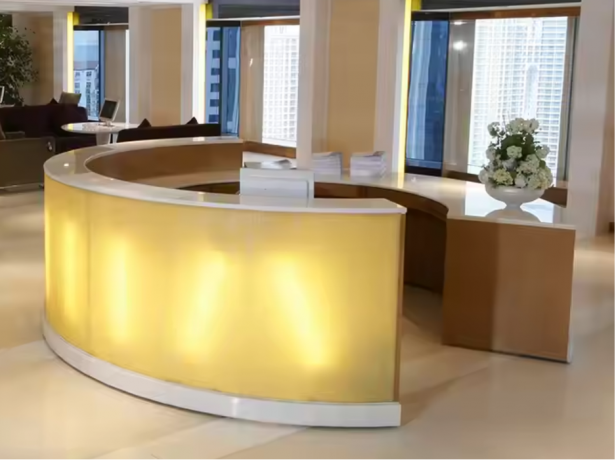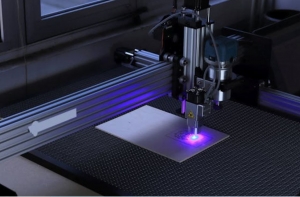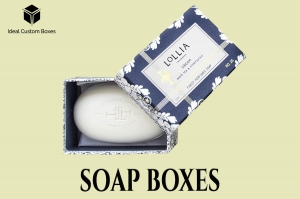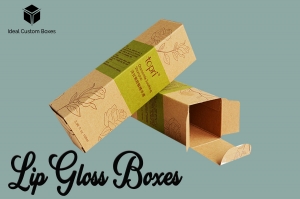Introduction
In both the healthcare and hospitality industries, the choice of materials plays a crucial role in ensuring safety, functionality, and aesthetics. The environments in these sectors require surfaces that can withstand rigorous use, frequent cleaning, and the highest standards of hygiene. Solid surface materials have emerged as a top choice, offering a perfect blend of durability, hygiene, and design flexibility. These synthetic, non-porous materials, made from a combination of natural minerals and resins, are becoming increasingly popular in hospitals, clinics, hotels, and restaurants. Their unique properties make them ideal for creating safe, clean, and visually appealing spaces. Companies like KKR Stone, the leading solid surface manufacturer, have been at the forefront of providing these high-quality materials.
What are Solid Surface Materials?
Solid surface materials are engineered materials typically used for seamless countertop installations and other surfaces. They are composed of a blend of natural minerals, such as aluminum trihydrate derived from bauxite ore, and synthetic resins like acrylic or polyester. This combination results in a non-porous, homogeneous material that can be molded into various shapes and sizes. Solid surfaces are renowned for their durability and versatility, often incorporating color pigments and acrylic chips to enhance their appearance. The ability to fabricate these materials into custom designs makes them an ideal choice for numerous applications in healthcare and hospitality settings. For instance, KKR Stone offers a wide range of these customizable and high-performing solid surfaces.
Key Properties of Solid Surface Materials
Solid surface materials boast several key properties that make them highly suitable for demanding environments. Their non-porous and seamless nature prevents the growth of bacteria, mold, and other pathogens, ensuring a hygienic surface that is easy to clean and disinfect. This characteristic is crucial in healthcare settings where infection control is paramount.
Durability is another standout feature of solid surfaces. They are resistant to scratches, stains, and impacts, making them ideal for high-traffic areas. Even if they do incur damage, solid surfaces can often be easily repaired through sanding and polishing, extending their lifespan and reducing maintenance costs.
Aesthetic flexibility and customizability are also significant advantages. Solid surfaces come in a wide range of colors, patterns, and finishes, allowing designers to create visually appealing and unique environments. The material can be molded into various shapes and sizes, enabling the creation of custom furniture, countertops, and fixtures tailored to specific design requirements.
Benefits of Solid Surface Materials in Healthcare
Hygiene and Infection Control
One of the primary benefits of solid surface materials in healthcare settings is their exceptional hygiene and infection control properties. The non-porous nature of these materials prevents the growth of bacteria, mold, and other pathogens, which is crucial in environments where sterility is paramount. Solid surfaces do not harbor germs, making them easy to clean and disinfect with standard cleaning agents. This ease of maintenance ensures that high standards of hygiene are consistently met, reducing the risk of infections and ensuring a safer environment for patients and healthcare workers alike.
Durability and Longevity
Solid surface materials are renowned for their durability. They are resistant to scratches, stains, and impacts, making them ideal for high-traffic areas such as nurse stations, operating rooms, and waiting areas. The material's robust nature ensures a long lifespan with minimal maintenance. Even if damage does occur, solid surfaces can often be easily repaired by sanding and polishing, which extends their usability and reduces replacement costs.
Aesthetics and Design Flexibility
The aesthetic flexibility of solid surface materials is another significant advantage. They come in a wide range of colors, patterns, and finishes, allowing healthcare facilities to create visually appealing and therapeutic environments. Custom shapes and designs can be fabricated to meet specialized needs, enhancing both the functionality and appearance of the space.
Safety and Comfort
Solid surface materials are non-toxic and chemically stable, ensuring they do not emit harmful fumes. This makes them safe for both patients and healthcare workers. Additionally, the seamless design of solid surfaces eliminates sharp edges and crevices, reducing the risk of injury and enhancing comfort, which is particularly important in settings like pediatric wards and patient rooms.
Benefits of Solid Surface Materials in Hospitality
Hygienic Surfaces
In the hospitality industry, maintaining hygienic surfaces is crucial, especially in areas where food is prepared and consumed. Solid surface materials are non-porous, which prevents the growth of bacteria, mold, and other pathogens. This property ensures that surfaces remain clean and safe for guests. The ease of cleaning and disinfecting these surfaces further enhances their suitability for food preparation areas, dining tables, and bar tops. By promoting a healthier environment, solid surface materials help maintain high standards of cleanliness and hygiene in hotels, restaurants, and other hospitality settings.
Durability Under High Traffic
Hospitality environments experience heavy foot traffic and constant use, which necessitates durable materials. Solid surfaces are highly resistant to wear and tear, including scratches, stains, and impacts. This durability makes them ideal for busy areas such as hotel lobbies, dining areas, and corridors. Additionally, the ability to repair and refurbish these surfaces economically extends their lifespan, providing a cost-effective solution for maintaining high-traffic areas.
Aesthetic Appeal
Solid surface materials offer immense aesthetic appeal, with customizable designs that can match any branding or theme. They come in a wide range of colors, patterns, and finishes, allowing hospitality establishments to create unique and luxurious spaces. Whether aiming for a modern, sleek look or a more traditional, elegant style, solid surfaces can be tailored to enhance the overall ambiance and guest experience.
Versatility in Applications
The versatility of solid surface materials makes them suitable for various applications within the hospitality industry. They can be used for countertops, wall cladding, furniture, and fixtures. Their adaptability allows for seamless integration into kitchens, bathrooms, reception areas, and more. This flexibility enables designers to create cohesive and functional spaces that meet the diverse needs of hospitality environments. KKR Stone's extensive range of products ensures that every project can be executed with precision and style.
Applications in Healthcare and Hospitality
Solid surface materials are incredibly versatile, making them ideal for a wide range of applications in both healthcare and hospitality settings. In hospitals and clinics, they are commonly used for countertops, sinks, and wall claddings due to their hygiene and ease of cleaning. Patient rooms, operating theaters, and nurse stations benefit from their seamless and non-porous nature. In the hospitality sector, solid surfaces are perfect for reception desks, bar tops, dining tables, and bathroom vanities. Their aesthetic flexibility allows for seamless integration into various design themes, enhancing both functionality and visual appeal across these industries. Leading manufacturers like KKR Stone have been integral in providing high-quality solid surface materials to meet these diverse requirements.
Comparison with Other Materials
Solid surface materials offer superior hygiene, durability, and design flexibility compared to alternatives like laminate, granite, and stainless steel. While laminate is cost-effective, it's less durable and can be porous. Granite is durable but requires regular sealing, and stainless steel, though hygienic, shows fingerprints and dents easily. Solid surfaces, despite a higher initial cost, provide excellent return on investment due to their longevity and ease of maintenance.
Conclusion
Solid surface materials offer unmatched hygiene, durability, and design flexibility, making them ideal for healthcare and hospitality settings. Their ability to maintain cleanliness, withstand heavy use, and integrate seamlessly into various designs ensures they meet the stringent demands of these industries.






